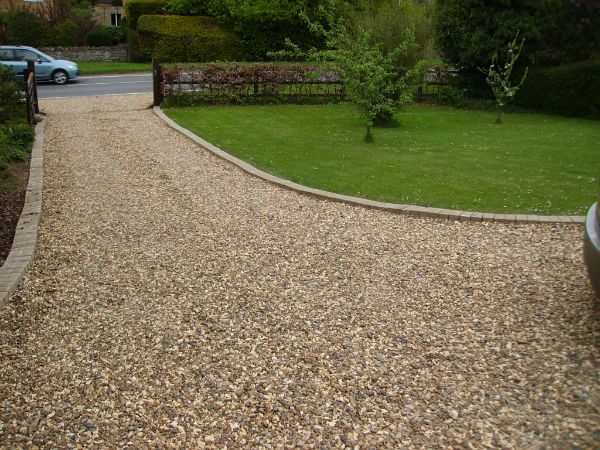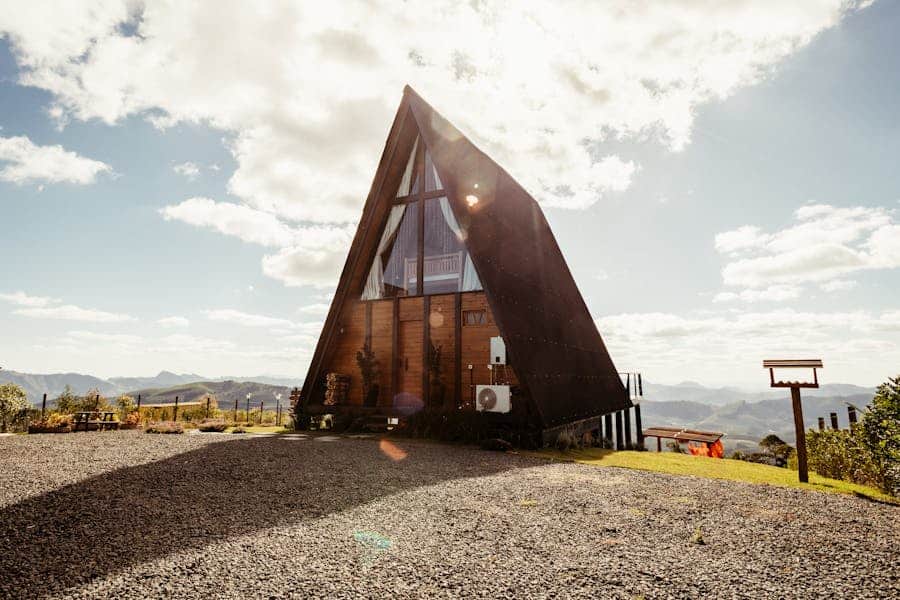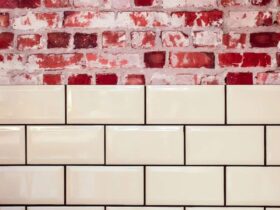For a driveway, the best type of gravel includes crushed stone, caliche, river rock, and pea gravel. These options offer durability and visual appeal.
When choosing gravel for your driveway, it’s important to consider factors like size, shape, and material to prevent erosion and ensure proper drainage. Whether you opt for crushed stone for a classic look or river rock for a more natural aesthetic, selecting the right gravel can enhance the overall curb appeal of your property while providing a functional surface for your driveway.
Additionally, pea gravel is a cost-effective choice that offers a softer texture underfoot and is easy to maintain. By understanding the different gravel options available, you can select the best type for your specific driveway needs and design preferences.
Introduction To Driveway Gravel
A well-constructed driveway not only enhances the aesthetic appeal of your property but also ensures durability and functionality. One crucial element in driveway construction is the choice of gravel. The type of gravel you select can significantly impact the performance and longevity of your driveway. In this article, we will explore the role of gravel in driveway construction and the factors to consider before choosing the most suitable gravel for your needs.
The Role Of Gravel In Driveway Construction
Gravel plays a vital role in driveway construction, serving as a foundational material that provides stability and support. It helps to create a solid base that can withstand heavy loads and endure various weather conditions. Additionally, gravel assists with drainage, preventing water accumulation that can lead to erosion and deterioration of the driveway surface.
Factors To Consider Before Choosing Gravel
- Durability: The gravel should be durable enough to withstand the weight of vehicles and resist wear and tear over time.
- Size and Shape: Consider the size and shape of the gravel particles to ensure proper compaction and a smooth, even surface.
- Drainage: Opt for gravel that promotes effective drainage, preventing water buildup that can compromise the integrity of the driveway.
- Cost-Effectiveness: Balance the cost of the gravel with its quality and performance to achieve the best value for your investment.
- Aesthetic Appeal: Choose gravel that complements the overall design and appearance of your property.
Gravel Types And Sizes
For a durable and stable driveway, consider using dense grade, river rock, or pea gravel. These types offer good traction and drainage, making them ideal for driveways. It’s important to choose the right size and type of gravel to prevent erosion and maintain the integrity of the driveway surface.
Popular Gravel Choices
When it comes to choosing the right gravel for your driveway, there are several popular options to consider. These include:
- River Rock
- Dense Grade
- Pea Gravel
Each of these gravel types has its own unique characteristics and benefits. Let’s take a closer look at each one.
Size Matters: Best Gravel Sizes For Stability
Choosing the right size of gravel is crucial for ensuring stability and durability of your driveway. Here are some recommended gravel sizes:
| Gravel Size | Recommended Use |
|---|---|
| 1/4 inch to 1/2 inch | Best for decorative purposes or pathways |
| 1/2 inch to 3/4 inch | Ideal for driveways with light to moderate traffic |
| 3/4 inch to 1 inch | Great for driveways with heavy traffic or larger vehicles |
Choosing the right gravel size will help prevent issues such as gravel displacement and erosion, ensuring a stable and long-lasting driveway.
Material Considerations
Choosing the right gravel for your driveway is crucial for durability and aesthetics. Options like crushed stone, pea gravel, and river rock offer different textures and colors to complement your landscape. Consider factors like drainage, maintenance, and local availability to select the best gravel for your driveway.
Assessing Durability And Longevity
When considering the material for your driveway, it is essential to assess the durability and longevity of the different types of gravel available. Some materials may offer a more extended lifespan than others, and it is essential to consider the cost of replacing the gravel in the future. Additionally, factors such as weather conditions, traffic volume, and maintenance practices can affect the lifespan of the gravel. Therefore, it is crucial to choose a material that can withstand the specific conditions of your driveway and provide the longest lifespan possible.
Aesthetics Vs. Functionality
While aesthetics may be an essential consideration for some homeowners, it is crucial to balance this with functionality when choosing gravel for your driveway. Some gravel materials may be visually appealing, but they may not be practical for a driveway due to their size, shape, or composition. For example, pea gravel may look attractive but may not be suitable for high traffic areas due to its tendency to shift and move around. Therefore, it is essential to weigh the pros and cons of each material and choose one that is both functional and visually appealing.
Choosing The Right Material
When it comes to selecting the best material for your driveway, there are several options available. Some popular choices include crushed stone, pea gravel, and river rock. Crushed stone is a durable and low-maintenance option that is available in a variety of sizes and colors. Pea gravel is a smaller, more rounded option that can be visually appealing but may not be suitable for high traffic areas. River rock is a larger option that can provide excellent drainage and is available in a range of colors and sizes. Ultimately, the best material for your driveway will depend on several factors, including your budget, the aesthetic you are trying to achieve, and the specific conditions of your driveway.
Installation Tips
When it comes to choosing the right kind of gravel for driveway installation, it’s important to consider factors such as the size, shape, and material of the gravel. Popular options include river rock, dense grade, and pea gravel. It’s recommended to have a depth of at least 2-3 inches for a stable and durable driveway.
When it comes to installing gravel for your driveway, proper preparation and layering techniques are key. Not only will this ensure a durable and long-lasting surface, but it will also help maintain proper drainage, preventing any potential water damage. In this section, we will discuss the necessary steps to prepare your driveway and the techniques for layering gravel effectively.
Preparation
Before laying down the gravel, it is crucial to prepare the driveway properly. Follow these steps to ensure a solid foundation:
- Clear the area: Remove any existing vegetation, rocks, or debris from the driveway surface.
- Grade the surface: Use a rake or shovel to level the ground and create a slight slope away from any structures to ensure proper drainage.
- Compact the soil: Use a compacting machine or a hand tamper to compact the soil and create a stable base.
- Install edging: Place edging materials, such as plastic or metal, along the sides of the driveway to contain the gravel and prevent it from spreading.
Layering Techniques
Proper layering is essential for a well-built gravel driveway. Follow these techniques to achieve optimal results:
- Base layer: Start by laying a base layer of larger-sized gravel, such as crushed stone or river rock. This layer will provide stability and support for the upper layers.
- Middle layer: Add a middle layer of medium-sized gravel, such as dense grade, on top of the base layer. This layer will help with drainage and provide additional stability.
- Surface layer: Finish by adding a top layer of smaller-sized gravel, such as pea gravel. This layer will create a smooth and aesthetically pleasing surface for your driveway.
- Compact the layers: Use a compactor or a hand tamper to compact each layer as you go. This will ensure a solid and durable driveway surface.
Maintaining Proper Drainage
Ensuring proper drainage is crucial for the longevity of your gravel driveway. Here are a few tips to maintain proper drainage:
- Regularly inspect the driveway for any signs of standing water or poor drainage.
- Clear any debris or obstructions from the drainage channels or gutters.
- Consider installing a French drain or a gravel driveway grid system to enhance drainage and prevent erosion.
- Periodically re-grade the driveway to maintain the proper slope and ensure efficient water runoff.
By following these installation tips, you can create a functional and visually appealing gravel driveway that will withstand the test of time. Remember to regularly maintain your driveway to prevent any potential issues and keep it looking its best.
Cost And Budgeting
For driveway cost and budgeting, it’s essential to choose the right gravel type. Opt for durable options like crushed granite, pea gravel, or river rock to prevent erosion and ensure longevity. Consider factors like size, shape, and material when selecting the best gravel for your driveway.
Price Comparison Of Gravel Types
When deciding on the type of gravel for your driveway, it’s essential to consider the cost implications. Different gravel types come at varying prices, which can significantly impact your budget.
Calculating Necessary Quantities
Before starting your driveway project, it’s crucial to calculate the amount of gravel needed accurately. This ensures you purchase the right quantity, avoiding any shortages or excess materials that can affect your budget.
Here is a comparison table showcasing the prices of different gravel types:
| Gravel Type | Price per Ton |
|---|---|
| Quikrete All-Purpose Gravel | $5.37 |
| Milestone Trucks Driveway Gravel Columbus | $25.30 |
| Landscape Rock Pebble | $29.98 |
| Prime Landscape Supply Crush and Run Gravel | $45.00 |
| MulchandStone | $53.64 |
It’s evident that prices can vary significantly depending on the type of gravel chosen for your driveway. Make sure to select an option that fits within your budget while meeting your project requirements.
Maintenance And Upkeep
Choosing the right gravel for your driveway is crucial for its maintenance and upkeep. River rock, dense grade, and pea gravel are popular options that provide durability and prevent erosion.
Routine Maintenance Tasks
Regular maintenance is essential to keep your gravel driveway in good condition. Here are some routine maintenance tasks that you should perform on a regular basis:
- Rake the surface of the driveway to remove debris and keep the gravel evenly distributed.
- Fill in any potholes or low spots with additional gravel.
- Compact the surface of the driveway using a roller or compactor to prevent erosion.
- Apply weed killer to prevent weeds from growing through the gravel.
Dealing With Weather And Erosion
Weather and erosion can cause damage to your gravel driveway. Here are some tips for dealing with these issues:
- During heavy rain or snow, use a snow plow or shovel to remove excess water and prevent erosion.
- Reinforce the edges of your driveway with landscape timbers or other materials to prevent erosion.
- Use a geotextile fabric under your gravel driveway to prevent erosion and keep the gravel in place.
- Apply a gravel stabilizer to the surface of your driveway to prevent erosion and keep the gravel in place.
In conclusion, maintaining your gravel driveway requires regular upkeep and attention. By performing routine maintenance tasks and taking steps to prevent erosion and weather damage, you can keep your driveway in good condition for years to come. Consider using a geotextile fabric or gravel stabilizer to reinforce your driveway and prevent erosion.

Credit: braytopsoilandgravel.com
Frequently Asked Questions
What Is The Best Type Of Gravel For A Driveway?
The best type of gravel for a driveway is crushed stone, caliche, river rock, or pea gravel. These options are durable, affordable, and provide good drainage. It’s important to choose the right size and shape of gravel, and to ensure that it is at least 4 inches deep for proper coverage.
What Is The Cheapest Gravel For Driveways?
Pea gravel, crushed granite, and steel slag are some of the cheapest options for driveways. They are cost-effective and provide good traction. These types of gravel are widely available and can be easily installed. Choose the one that suits your preference and budget for a budget-friendly driveway.
Is 2 Inches Of Gravel Enough For A Driveway?
Yes, 2 inches of gravel is sufficient for a driveway, providing a stable foundation.
How Thick Should Gravel Be For A Driveway?
For a driveway, gravel should be at least 4 inches thick to provide adequate support and durability.
What Are The Best Types Of Gravel For A Driveway?
Construction and Driveway Gravel – River Sand Inc. offers a variety of options like river rock, dense grade, and pea gravel.
Conclusion
Choosing the right gravel for your driveway is crucial for both functionality and aesthetics. Consider factors like size, shape, and material to prevent erosion and ensure durability. Popular choices like crushed stone, river rock, and pea gravel offer a balance of cost-effectiveness and visual appeal.
Proper installation and maintenance are key to a long-lasting and attractive driveway.








Leave a Reply